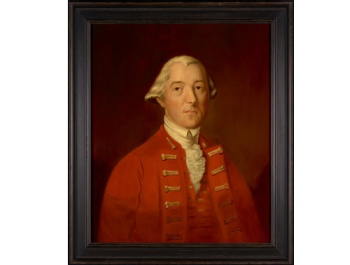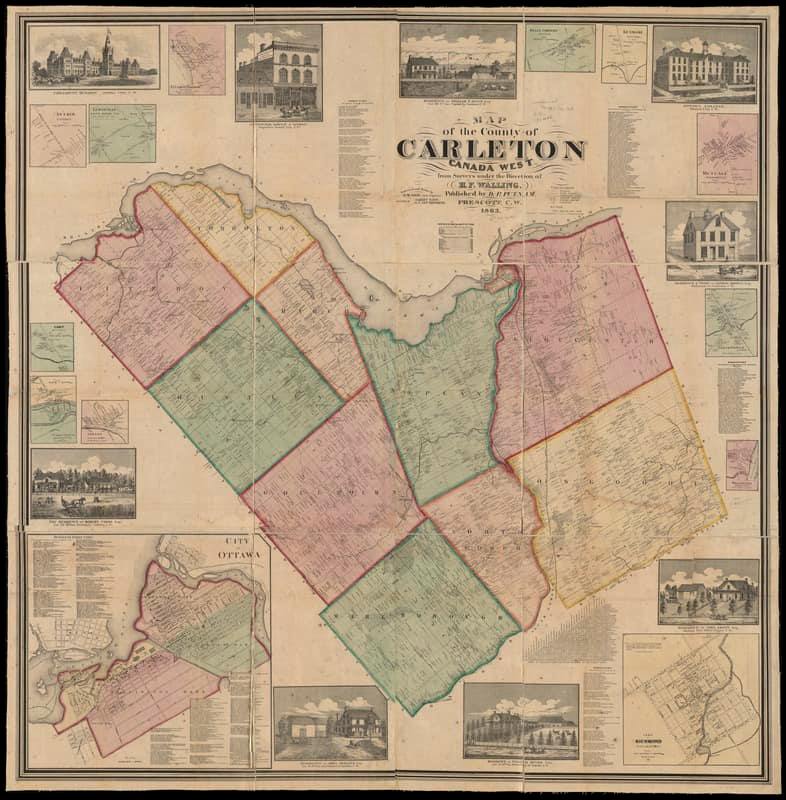3 September 1724
Who was this “Carleton” fellow so much has been named after in the Ottawa area?
Sir Guy Carleton was born 300 years ago, on September 3, 1724.
A clever pragmatist, Sir Guy left an indelible mark on Canada’s past — and did much to shape the nation we know today.
Carleton brought the Loyalists here. The Book of Negroes, that secured the freedom of thousands of former American slaves, was also Carleton’s doing. Before that, Carleton had ensured that the newly conquered inhabitants of New France would be able to retain their French language, civil law and Catholic religion. The promise to be able to keep the Catholic religion was remarkable during an era when the British (none more so than those in the American colonies) were virulently anti-Catholic. This commitment would contribute to Canada becoming a rare refuge for other Catholics, including the Irish, for many decades to come.
Sir Guy Carleton’s many interventions would have numerous consequences for the future of Canada.
Sir Guy’s name does seem to be everywhere, doesn’t it?
Many of us carry birth certificates attesting that we were born in Carleton County. We attended Carleton University or were students of Ottawa-Carleton school boards. The Queensway-Carleton Hospital offers us medical care — and we commute via OC (Ottawa Carleton) Transpo. Plus, a significant number of Canadian place names honour Sir Guy’s later title, Lord Dorchester, as well!
In addition to Carleton’s other achievements, Sir Guy was injured in battle three times — in war in France, in war in Spain — and helping General Wolfe defeat the French on the Plains of Abraham in 1759. A decade and a half later, at the commencement of the American Revolution, Carleton directed the defence of Quebec, including defeating Benedict Arnold (who, at the time, was still siding with the Revolution).
Carleton was Governor of Quebec from 1768 to 1778 and 1785 to 1795 and Governor General of British North America from 1782 to 1783 — and he was famously incorruptible. It was Carleton’s recommendations that led to the Quebec Act’s protection of French-Canadians’ rights to their language, Catholic religion and code of civil law. (This may have actually helped precipitate the start of the American Revolution. In 1774, the members of the First Continental Congress were outraged — bitterly denouncing the Quebec Act as promoting Catholicism, particularly perturbed that Catholics could now hold civil service positions.)
As British Commander-in-Chief at the conclusion of the American Revolution, it was Carleton who, seeing how Loyalists were being abused by their victors, made arrangements for land (with provisions) to be set aside for the them in what would later become Canada.
As well, Carleton angered George Washington by insisting that former slaves who had sided with the British, not be returned to their “masters”, but rather be granted their freedom and allowed to leave for new homes in Nova Scotia. Carleton directed the creation of a “Book of Negroes” where the names of the departing former slaves would be recorded, allowing the British to pay their former “owners” compensation in return. (It would seem that few accurate names were provided and little or no compensation was ever paid.)
Sir Guy Carleton had an immense influence on our nation’s history.
Carleton’s initiatives after the fall of New France kept Quebec (and ultimately Canada) within the British Empire. (Not on Britain’s terms, but those of the Québécois.) Distrusting the rumblings of revolt emanating from the Thirteen Colonies, Carleton preferred the orderliness of the existing semi-feudal society he found in Quebec. Carleton, in fact, pushed directly against his King’s Proclamation of 1763 which had insisted on the use of English law, abolished the Catholic church, and promised an elected legislature, after the British model. In Carleton’s mind, the best way to retain the loyalty of the Québécois was to let them live their lives their own way. He feared that an elected assembly would tilt power to the English minority to dominate the French-speaking majority.
Carleton had never been a favourite of King George III, but despite that had made his way through other strong connections. Carleton could be high-minded, autocratic and aloof. Sir Guy cared little for democracy. And of all those for whom Carleton advocated — North America’s Indigenous peoples seem not to have been included. Sir Guy Carleton’s influence on our history (and our present) is, however, undeniable.
Ben Weiss is a key volunteer with the Historical Society of Ottawa and a recipient of the François Bregha HSO Storyteller Award.







